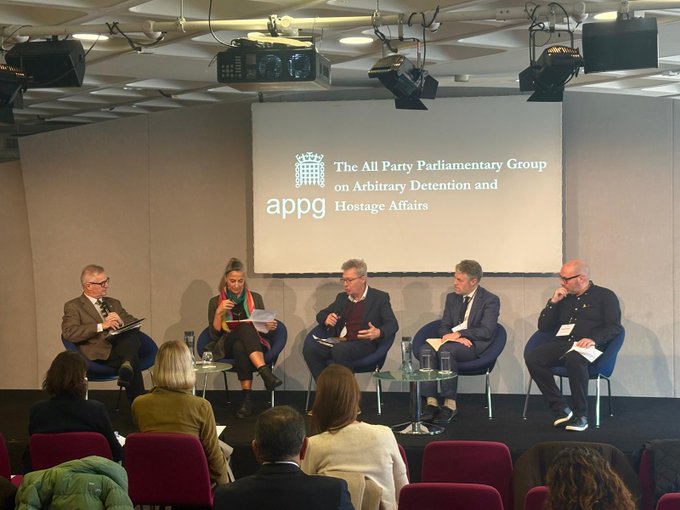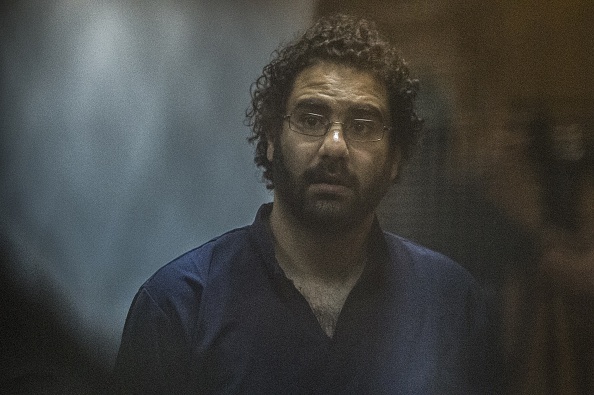
Discussions in the sidelines of the 60th UN Human Rights Council session highlighted the depth and scale of repression in the United Arab Emirates and the phenomenon of transnational repression in the Arab states.
On 2 October, FairSquare’s James Lynch moderated Silencing dissent: mass trials in the United Arab Emirates, a panel discussion at the Geneva Press Club, featuring Emirati human rights defenders and experts.
Lynch noted that the UAE has been experiencing a human rights crisis for 15 years, citing COP28 as a striking recent example. As international attention was focused on the UAE during this major global event and calls were being made for the release of arbitrarily detained individuals, including Ahmed Mansoor, the authorities responded by organising a new mass trial, known as the UAE87. At the time the charges were laid, FairSquare said the actions of the Emirati authorities “beggar[ed] belief“.

FairSquare also joined the Egyptian Human Rights Forum and other civil society partners in holding a panel discussion on transnational repression and the shrinking space for freedom of expression in Egypt and Lebanon. The event, which was held on 26 September at the United Nations HQ in Geneva, included significant discussion of the case of Abdulrahman Yusuf Al Qaradawi, the Egyptian national forcibly transferred from Lebanon to the UAE in January this year, where he was subjected to enforced disappearance. FairSquare’s James Lynch argued in his intervention that Gulf states such as the UAE and Saudi Arabia increasingly enjoy immunity when carrying out acts of transnational repression, thanks to their economic influence.

